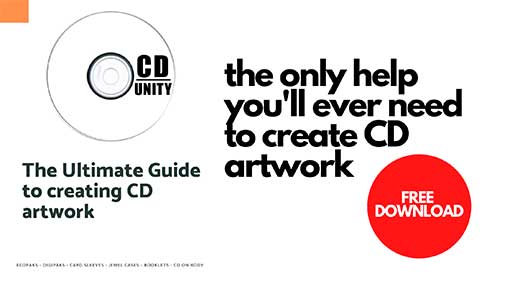How to get booked at music festivals. 21 tips to get you booked.
Looking to take your music career to the next level and get booked at some of the world’s most renowned festivals?
From networking strategies and marketing techniques, live performance tips as well as overall professionalism – discover 21 essential tactics for being noticed by festival organizers no matter where you are in your journey!
01 Find Networking Opportunities

As a musician, networking is essential to your success.
Establishing connections with festival organizers, booking agents and other industry professionals can help you build invaluable relationships that could open new doors and create incredible opportunities – leveraging the expertise of movers & shakers in the music world will give you an edge over others when it comes time for bookings!
For those looking to make connections in the music industry, conferences and trade shows are invaluable.
These events bring together professionals of all types – from festival organizers to booking agents and musicians – giving you an excellent opportunity to network!
Show your face around these gatherings, exchange contact information with people that interest you most, then be sure not forget about them; follow up after-the-fact for lasting professional relationships.
Networking is essential for advancing your music career and social media can be a fantastic way to do so. Connect on platforms like LinkedIn, Twitter, Facebook or Instagram with professionals in the industry to stay informed of trends, opportunities and engage with followers who amplify you visibility tenfold!
02 Marketing Research

Creating and upholding a strong online identity for your brand ensures that you can connect and engage both bookers and fans alike.
If you want to take your music career to the next level, create a professional website and utilize social media.
Your website should be visually appealing while providing easy access to information such as photos, music samples, biographical info – whatever festival promoters or booking agents need!
Include links for viewers who would also like direct access to your various social media platforms so they can stay up-to-date on any news regarding live performances or press coverage of your work.
Don’t forget that all profiles must look professional in order keep followers engaged with content specifically related back to you and/or the development of your musical career.
03 High-Quality Music
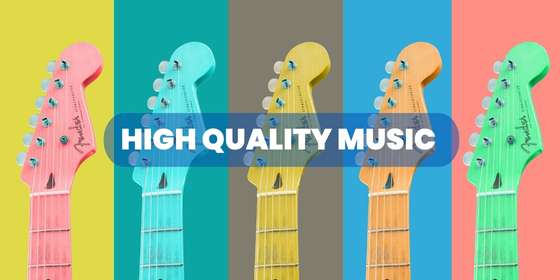
High-quality recordings are the foundation of a successful artist profile; time spent writing, recording, and rehearsing your songs will help you showcase your unique talent to booking agents or festival organizers.
Consider hiring experienced professionals such as producers or engineers who can assist in creating sophisticated audio presentations that accurately reflect musicianship levels and make audiences engage with their performances.
04 Unique Sound
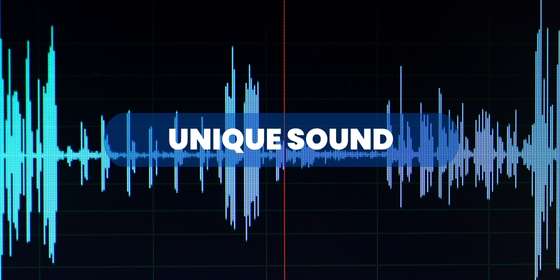
Ensuring that your sound is distinct and captivating is imperative.
Festival organizers and booking agents are always on the lookout for fresh acts which draw in audiences with one-of-a-kind sounds.
To make it happen, you’ll have to step outside of your comfort zone and be daring with your music.
Try melding elements from different styles and genres or coming up with something entirely new; such innovation could result in a distinguishing performance that resonates with audiences.
Don’t be scared to experiment – with a bit of creativity, you can leave listeners wanting more!
05 Live Performance Skills
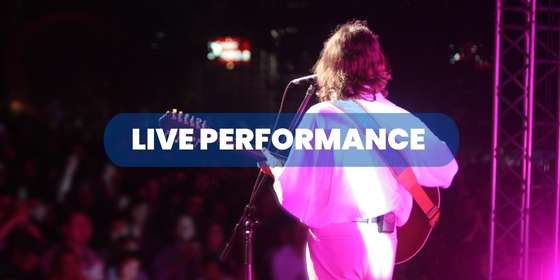
For music festival promoters and booking agents, a musician who can deliver an energetic and engaging live performance is invaluable.
To get your festival slot, you must use your strong ability to captivate audiences.
To perfect your live performance skills, regular practice and rehearsal are key. Doing so will help you become more secure on stage and give you the insight to swiftly adapt to a variety of scenarios that may arise in the moment.
Refining these physical performances builds confidence, as does honing your stage presence, level of engagement with fans, and overall interaction with concertgoers.
In addition, reflecting upon each show and using it as a learning opportunity allows you to consistently improve when you play live.
Developing your live performance skills is an ongoing process involving active practice, studying other musicians’ techniques, and engaging with the audience.
To observe and learn from other musicians, you can watch live performances online, attend concerts, and analyze their stage presence and techniques.
This will give you the much-needed inspiration to refine your own technique and help you establish a unique style.
Also, a key area of focus while earning these skills must be crowd interaction. Connecting with your audience goes hand in hand with creating a captivating experience that they won’t soon forget.
Achieving effective engagement could involve speaking to the crowd, making eye contact and reciprocal gestures as well as encouraging audience participation.
With a deeper understanding of how to strike such meaningful interaction between artist and spectators alike, comes developing the confidence to manifest that into brilliant live shows.
Test drive your song!
Without the right mastering, your song could lack the impact it deserves, leaving you feeling frustrated.
Experience the transformation! Get a FREE mastering demo of your track and discover the sound quality you've been looking for.
06 Professionalism and Musicians
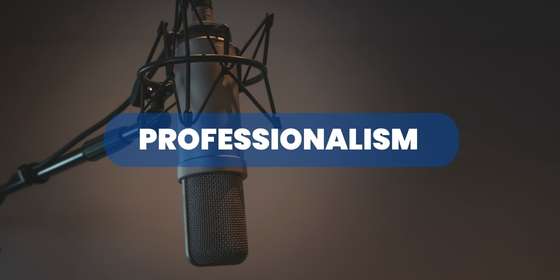
Consider this advice: it’s essential to demonstrate professionalism when navigating your career as a musician. This involves having a strong work ethic, staying organized, and cultivating your communication skills.
This could look like always showing up for gigs and rehearsals on time, promptly responding to emails and messages, and portraying yourself in an extremely professional way across all spectrums of your career.
Festival organizers and booking agents highly value such attributes, as reliability and customer service initiatives go a long way in this specialized industry.
Creating a professional image and branding yourself accurately to reflect your musical style and aesthetic is beneficial, starting with having a professional website and a presence on social media.
This could be achieved by having stunningly designed promotional material, in keeping with a clear and consistent message. To take professionalism to another level, it’s essential to alway be reliable and dependable.
Treating each commitment as seriously as the last, for example delivering albums according to schedule on deadline day, leaves you as an artist seen as trustworthy by everyone.
07 Relevant Experience (not only at music festivals)

Playing music over the years truly pays off. By gaining relevant experience through performing at venues, clubs and local festival stage, build up enough quality experience on your portfolio to catch the eye of booking agents and festival organizers.
Having notable past performances definitely adds to your appeal; having a strong portfolio filled with recordings and live gig experiences can be a deciding factor. So show them what you’ve got!
If you have released music before, it’s even better as live recordings can boost your credibility in their eyes. The more substantial this body of work – the better chances you’ll have at getting booked for bigger music festvals and live events.
When making an application, agents will take note of those who have some relevant experience they can analyze or that they’re familiar with.
By implementing these great techniques for showcasing experience and presence, you can ensure that festival organizers and booking agents notice strong potential in your talent as opportunities will follow a trail of excellent work. Having an impactful online presence ensures that your music is heard by more people also!
08 Demo for Promoters
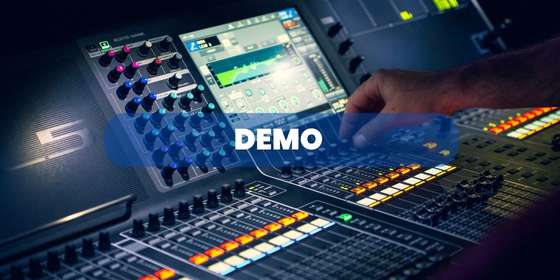
To get booked at a music festival, it’s necessary to create high-quality demo that encapsulate your talent and truly portray your music. It’s crucial that demos remain as short as possible, but including just enough elements to spark interest in whoever you’re presenting them to.
30 seconds or two minutes should be the maximum runtime, displaying mixed samples from any recordings — from charged singles audibly cutting through the speakers to lightning fast live performances — outlining the very best of someone’s artistry.
To make sure your music truly stands out, you’ll want to make sure your demos are produced and presented to the highest standard. So if you’re looking for showcase-worthy quality, you may want to consider getting your demo professionally pressed on a discs.
09 Promo materials
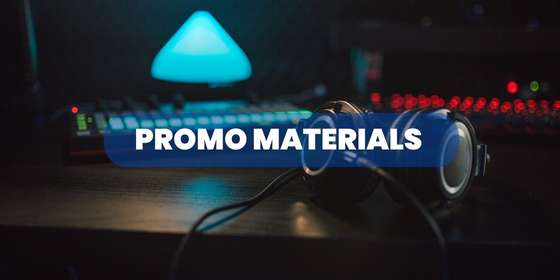
Having promotional materials is an integral step to get booked for a festival. This can include a well written band bio, press kit, photography, and videos of performances.
Crafting the perfect band bio should highlight relevant information about the artist: influential sources, musical background, befitting storylines that spark connection with listeners, plus show off stylistic wins and special moments. Plus key statements of ambition – letting promoters know exactly what you’re dreaming for your artistic journey.
Bringing together these elements will tantalize festival audiences with authentic descriptions of how members came together in success – reflecting their expression before anyone got to give it a listen
Professional photos and videos are especially important when planning on playing shows and music festivals.
Covering some time spent in both preparation and editing is highly recommended as having a well-produce set of photos and clips deliver a clear understanding for booking agents visuals of what your live performance would look and sound like on stage.
By taking small amounts of efforts such as formatting documents, organizing info, cover the studio time if needed — those add up to send the message that you’ll delivering professional performance. Festival organizers or booking agents – they count on you having things ready to go!
10 Timing
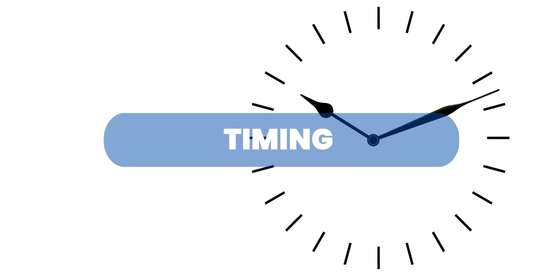
Festivals usually start the planning and artist booking process anywhere from months to one full year ahead of time – so the earlier you reach out and start promoting yourself and your music, the better.
It’s also important to keep track of application deadlines for the festival gig that you’re interested in. Application cut-off dates are often necessary for organizers and booking agents, so if you fail to submit everything in a timely fashion, your chances for hitting the stage may be slim.
Planning ahead can make all the difference when hoping to get booked for festivals.
So, it’s important to be aware of peak festival season – usually running from late spring and extending through to early autumn – if you’re eager to get booked.
During this time, shifting your focus onto actively promoting yourself and your music can prove especially beneficial.
Additionally, activities such as tracking conversations happening around festival lineups, sprucing up your press kits for different size festivals, keeping in contact within influencers who are open to passing on the music that speaks to them.
11 Patience ( a key to get booked)

Getting booked at music festivals can be a long and challenging process, so having patience and persisting in your efforts is key. UK music festivals receive many submissions from artists and bands, so it may take longer to stand out in the crowd.
If you initially encounter rejections or don’t get booked as soon as you’d like, do not get discouraged. Instead, focus on honing your craft, pushing yourself out there in promotion, and never give up on your goals.
12 Collaboration

Collaboration is highly valued in the music industry, and can play a major role in whether or not artists and bands get booked for music festivals.
Collaborating with other musicians opens up a world of possibilities; it could help you develop your network, extend your reach, open the door to new opportunities – the benefits are virtually limitless.
Considering jam sessions together? Breaking news: Nothing beats bringing two separate audiences into one larger circle!
Both parties can benefit from mutual promotion and access to other supporters.
With every A+ team effort comes increased survival rate in this competitive industry… and better still, that translates into attractive opportunities for festival spots!
13 Live shows
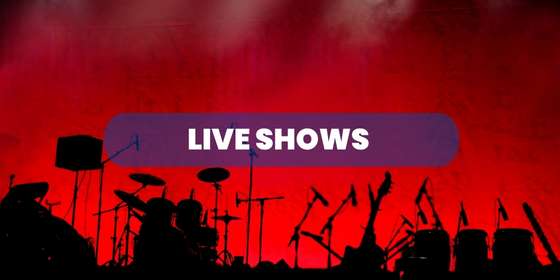
Organizers, booking agents and other attendees like to experience and feel the energy of a great show. Powering up your live performance is paramount; here are some simple steps to follow.
Ensure you’re performing with tightness, practice and proficiency as you transition around the stage—this is hugely important for creating an effective, enjoyable show.
Additionally, creating and knowing your setlist actions prior helps organize yourself and allows you complete control of how your performance will run.
Lastly, think about how you can cater for the audience—respond to their reactions and keep them excited throughout your act!
Don’t be shy from taking occasional odd slots to play. Music business can take an unexpected turn when you least expect it.
14 Consistency (many fail at this)
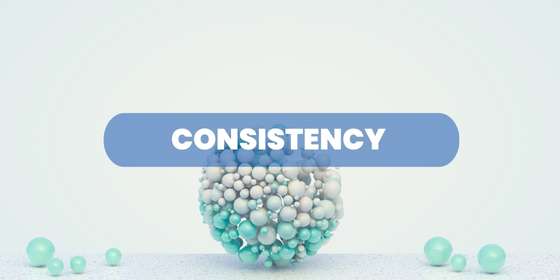
If you’re serious about getting booked at music festivals, consistency is key. Festivals want to see that you’re fully committed to your craft and producing consistent, high-quality music content.
One way that you can prove consistency is by releasing fresh material consistently for your fans.
This could mean releasing songs individually, but also dropping albums or EPs regularly too. It’s important to have a constant style be present in all of your music, so your fans can learn which sound to expect from you when attending one on of your live performances.
15 Social media presence

Harnessing the power of social media is essential when it comes to growing your presence.
You can grow your brand and engage with potential fans through regular high-quality content uploads, such as music videos and live performances.
Additionally, remember to reach out to other musicians, industry professionals, and fans and join in on conversations related to your genre or music scene to create powerful connections and spread awareness about you and your sound.
Put together a strategy that includes paid advertisement and collaborations with influencers who align with you philosophically or musically—these are effective tactics for helping you gain even more visibility.
16 Repertoire
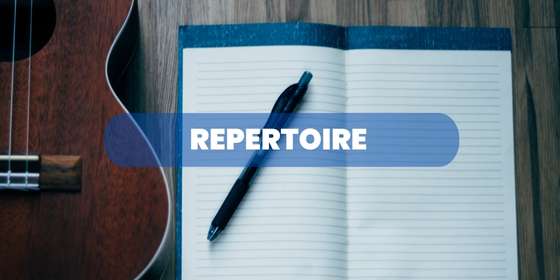
Building your repertoire is key to setting yourself apart from other musicians. Showcase both original songs and expertly executed covers of well known tunes that best reflect your one-of-a kind sound and style.
At the same time, diversifying your repertoire to include various genres and styles allows you to appeal to a broader audience.
Not only that, but it also emphasizes your versatility as a performer. This will bring in more bookings at music festivals and increase your chances of success drastically.
Taking this into account and executing it creatively could be the differentiating factor between you and competitors when event organizers decide who to book!
17 Press coverage
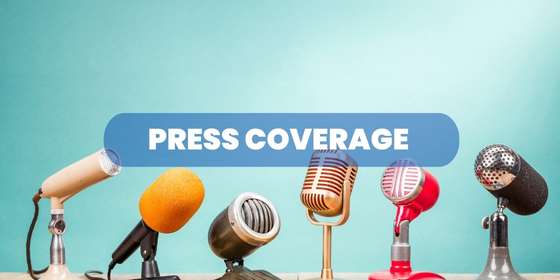
Building up a strong media presence through press coverage can help increase your visibility and get positive attention from those in the industry.
Press coverage can be found in many places, such as articles in music magazines, interviews on radio and television, and even websites or blogs featuring your work.
Primary exposure will increase the chances that festival organizers will pay special attention to your sound and motivate them to book you for upcoming events.
By revving up publicity around yourself and your music, you open the door to some wonderful opportunities! Having a pervasive presence across multiple knowledgeable outlets is an effective way to make sure people hear about your talents.
Start by introducing yourself and your music to local and national media outlets, like radio and television stations, news publications, music publications, and relevant websites.
Customize each introduction to emphasize what makes you unique as an artist, in hopes of gaining more significant coverage for your releases and performances.
18 Music industry events
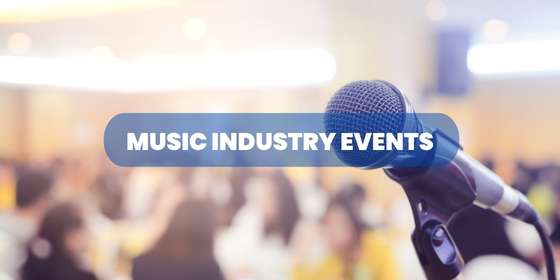
Attending music industry events such as conferences, workshops, and networking opportunities can be an excellent way to lead a successful musical career.
These events are unique mix of people from across the industry. This includes musicians, managers, agents, booking agents, publicists and festival organizers.
These meetings provide the perfect opportunity to build relationships that can help get your music heard and potentially book you at music festivals. It’s also a great chance to meet other like minded musicians who may even become life long friends never mind fellow professionals.
Making a point of engaging with event attendees and having meaningful conversations will leave them remembers you positively so do take that opportunity seriously!
No matter what music industry event you attend, it pays to come prepared.
Always research the upcoming event and its attendees beforehand, preparing their promotional materials and business cards to support their goals. Additionally, appropriate attire sets the stage for a memorable and respected introduction among other guests.
19 Music festival submissions
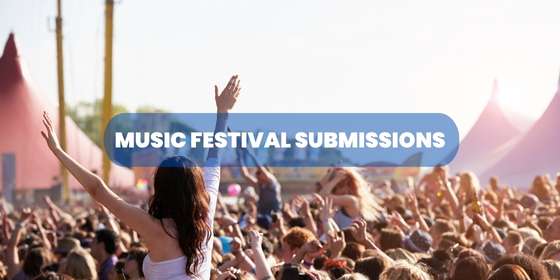
One of the most direct ways to do this is by submitting your music to the festival organizers. Many festivals currently have an open submission process, where they invite musicians to submit their tunes and other materials for consideration.
So – when you meet the submission guidelines for prospective festivals, here are some tips for making sure your application shines through:
- provide as much information as possible about your musical history and accomplishments;
- upload audio and video files complemented with detailed descriptions so it’s easy for festival organizers to understand the content;
- submitted press kits should include a written version of your artist bio, description of any performances or residencies that have occurred in the past, one or two additional press photos, list of press contacts and reviews.
Remember – following the submission guidelines thoroughly is key to get booked.
20 Music industry relationships

Building relationships in the music industry is a necessary step towards booking yourself for festivals.
Establishing strong connections with booking agents, festival organizers, music industry professionals and other musicians is key.
Take the initiative to follow musicians and other relevant professionals in your field so you can keep up to date with their latest projects.
Keep track of when setting gossip editors, booking agents, festival organizers, music supervisors, sound engineers producers and more post content–you also can keep regularly interacting and engaging with them.
Doing this will not only help you remain prominent & gradually build visibility but it lets these respected professionals in your niche recall or learn almost immediately who you are and why they should honor investing their time in your work.
21 Flexibility

It’s important to remain flexible. This means being open to opportunities that present themselves outside of your comfort zone and willing to adapt if things change unexpectedly.
Flexibility could mean needing to alter your setlist on short notice or changing your performance time.
By looking for solutions and being accommodating, you can demonstrate a reliable attitude towards organisers and make a strong impression, improving your chances of being booked at music festivals.
Additionally, it pays to have a willingness to change and try new things.
Staying up to date with upcoming festivals and music events is a great way to recognize new opportunities in the industry, as well as opening yourself up to different types of performances and show venues, thereby expanding your horizons and fan base.
How much do music festivals pay artists
Put yourself in the crowd at a music festival and you’ll likely see artists of vastly different levels of experience and fame on stage. But how much do all those acts get paid? Understanding how rates can vary and what could influence them can help musicians make informed decisions about where to perform.
Here’s a general look at the range of payment for different tiers of musical acts based on their level of experience and popularity:
Emerging artists are often still on the rise, so many will take a smaller fee or assume no payment in exchange for exposure that comes with an important performance platform like a major festival.
Mid-level acts typically enjoy more established reputations in the music world than emerging artists, so they may collect rates between £300 and $10,000 for their set at a marquee event.
Headlining musicians who are further along in their careers have more influential industry positions which they can leverage as they command contracts ranging from tens upwards to hundreds of thousands of pounds just for playing one show.
Is it normal to have festivals require fees to submit?
Some music festivals may charge a submission fee to offset its administrative costs associated with evaluating applications. However, not every festival charges for submissions, so just make sure you understand each potential event’s policy before applying.
Before applying, research the festival to ensure you know what their policies are as they relate to submissions. Educate yourself on whether they require a submission fee and if there is an opportunity to have that waived in the event artists get selected to perform. Additionally, stay up to date with any changes the host may make in respect to fees or its application process.
All in all
In conclusion, breaking through into the world of music festivals requires some savvy tools.
To make your mark with festival organisers, having high quality music and a unique sound are key. Promotion is essential too, and you should maximise social media presence to the extent that you can.
Following this advice isn’t only beneficial for experienced performers, either; if you’re just starting out in the industry then it’s an important set of steps to building up your skill, establishing contacts and honing your sound for an impactful performance.
With these 21 tips as your toolbelt, both amateurs and veterans will have a good chance of getting into successful shows at music festivals!
Hope that was helpful.
Thanks for reading.
Josh
Includes PR companies, UK promoters & UK booking agents. Everything you need to put your band on the map.
Hello, I’m Josh, and I’ve been honing my graphic design skills for almost 15 years now, catering to the needs of bands and businesses alike. What really fascinates me is the business aspect of the music industry. In addition to my design work, I also happen to play the Hammond organ, and I strive to share my knowledge through helpful articles that I write exclusively for you all!

